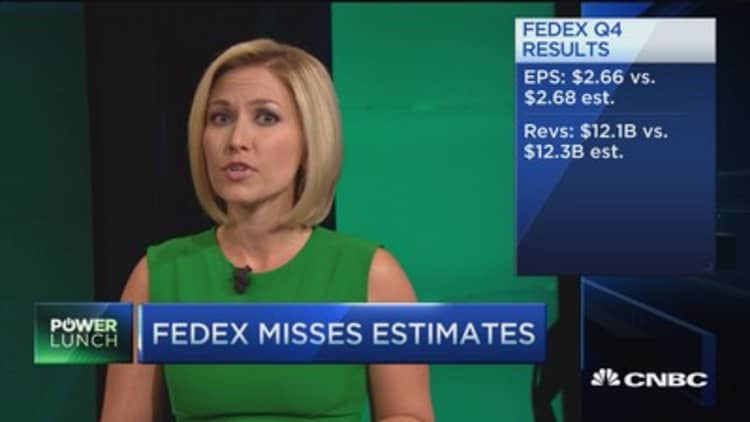With summer trips to the Hamptons in full swing, one of the furthest things from consumers' minds is the upcoming holiday season.
Regardless, the possibility of having higher costs tacked onto shipments of oversize packages could have retailers singing the summertime blues.
A report in The Wall Street Journal this week said UPS plans to eliminate big discounts on these large packages during the critical fourth quarter, and potentially all year. That prompted Cowen and Company analyst Oliver Chen to calculate how significantly such price increases would hurt retailers' bottom lines
Read MoreRetailers with the biggest online businesses
Though he found that higher shipping costs would be only a "slight" negative for these firms—in particular, those that tend to ship large goods including furniture—he said incremental fees and other pricing changes have the potential to drive their long-term costs higher.
That's especially true as online sales becomes a larger percentage of their business.
"We believe broadline retailers and department stores are more likely to be affected given greater percentage of oversize home-related and furniture deliveries, as well as limited ability to raise pricing on highly competitive items," Chen said.
He added a caveat: retailers could take steps to mitigate these higher costs, such as having shoppers pick up their orders in store.
How much of a hit? It all depends

According to Chen's analysis, the price increases could have a 2 to 3 cent negative impact on Costco's fourth-quarter earnings per share, depending on the rate increase.
At Macy's and Nordstrom he estimates a 2 cent hit; at Target and Wal-Mart, a loss of 1 cent per share; and at Kohl's, between a zero and 1 cent per share decline. He added that the increases could also be a concern for Restoration Hardware, whose online sales account for half its business.
Though these dips would not drastically change retailers' holiday results, they highlight one of the frequent criticisms of the rise in online shopping.
Read More5 ways bigger online sales can hurt retailers
Although analysts acknowledge that Web investments are essential to staying relevant with consumers, it doesn't always mean they will see an increase in sales. It does, however, cause their margins to suffer—particularly as consumers have come to expect that retailers will eat the shipping costs.
According to a recent survey by comScore and UPS, 77 percent of online shoppers said free shipping is the most important criteria during checkout.
Read MoreAmazon sees Wal-Mart's bet, raises ante
Regarding the Journal report, UPS spokeswoman Susan Rosenberg said, "UPS approaches each customer's account to meet that customer's needs while also ensuring UPS is appropriately compensated for the valuable services we provide. We consider discussions with our customers regarding their service agreements as confidential."
Forrester Research predicts online retail sales will increase 12 percent in 2015 to $334 billion. That figure would represent 10 percent of all retail sales, according to the firm.


